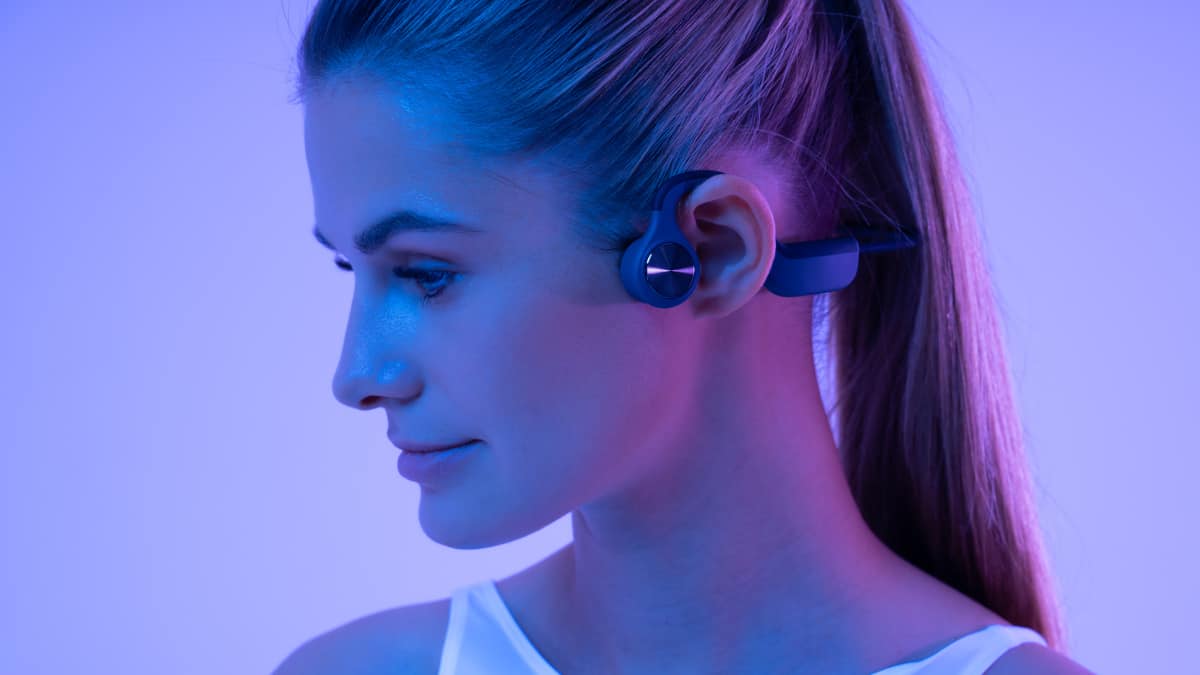Can bone-conduction headphones damage your hearing?

Table of Contents
Concerned as to whether bone-conduction headphones can damage your hearing? It's a common question, and we're here to look into the information available.
Consumers have been able to access bone-conduction headphones for only a short time – the first product hitting the market back in 2008. The popular brand Shokz has been around for roughly a decade, while other brands include Zygo, Padmate, and Mojawa.
Prime Day is finally here! Find all the biggest tech and PC deals below.
- Sapphire 11348-03-20G Pulse AMD Radeon™ RX 9070 XT Was $779 Now $739
- AMD Ryzen 7 7800X3D 8-Core, 16-Thread Desktop Processor Was $449 Now $341
- ASUS RTX™ 5060 OC Edition Graphics Card Was $379 Now $339
- LG 77-Inch Class OLED evo AI 4K C5 Series Smart TV Was $3,696 Now $2,796
- Intel® Core™ i7-14700K New Gaming Desktop Was $320.99 Now $274
- Lexar 2TB NM1090 w/HeatSink SSD PCIe Gen5x4 NVMe M.2 Was $281.97 Now $214.98
- Apple Watch Series 10 GPS + Cellular 42mm case Smartwatch Was $499.99 Now $379.99
- ASUS ROG Strix G16 (2025) 16" FHD, RTX 5060 gaming laptop Was $1,499.99 Now $1,274.99
- Apple iPad mini (A17 Pro): Apple Intelligence Was $499.99 Now $379.99
*Prices and savings subject to change. Click through to get the current prices.
Bone conduction technology has actually been around for centuries. We have to thank this technology for the revolutionary invention of hearing aids and other devices which help people with hearing loss.
So, if this bone-conduction technology has been around for ages should we be worried about using products built around it?
Find out the answer to this question in our article below.
How do bone-conduction headphones work?
Understanding how bone-conduction headphones work can be confusing. Their unconventional design can make your head turn and we assure you you're not alone. However, fear not. I will explain how this unique feature works below.
Traditional headphones deliver music to your eardrum through sound waves from the built-in speakers. Whereas headphones like those developed by companies like Shokz rely on a patented bone-conduction technology.
Specifically, Shokz headphones have built-in transducers that send vibrations from your cheekbones straight into your inner ear. As a result, sound completely misses your eardrum so you hear music from inside your ear.
This feature offers many benefits: Since bone-conduction headphones are not in-ear devices, you can still hear sounds from your surroundings – improving safety for those more active music listeners.
Due to this bypassing technology, bone conduction also favors users with hearing impairments such as eardrum damage.
Are Bone Conduction headphones less harmful?
The question of whether bone-conduction headphones are less harmful than traditional headphones is still up for debate. The issue is complex and can change from whichever angle you view it from.
An open-ear design improves the safety of those wearing headphones outside and of course, limits the risks of headphone-related hearing damage.
However, don't be fooled: much like traditional headphones, bone conduction headphones can be unsafe if used inappropriately
As stated by the CDC, hearing loss can develop from sustained exposure to loud sounds, resulting in damage to the cochlea found in the inner ear. Since bone-conduction headphones work by sending vibrations to your inner ear, there is undoubtedly a risk here as with any headphones.
While some users do report headaches from using these types of headphones, it’s not obvious or clear if this is perhaps caused by continuous vibrations and user tension or ill-fitting devices.
Conclusion
Although we are in no way medical experts, from our own research it seems bone conduction headphones carry the same risks as traditional headphones. Specifically when it comes to potential hearing loss associated with the overuse of loud volumes.
To date, there's no clear evidence that bone conduction technology offers a particular risk to users.
It is clear, though, that these headphones, provided by Shokz, or other brands, offer increased benefits when it comes to the safety of users while they are out and about. Additionally, this technology provides opportunities for users with hearing impairments to still listen and enjoy music.
With this in mind, we recommend choosing your next headphones based on your comfort and how you plan to use them.

